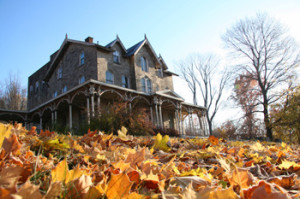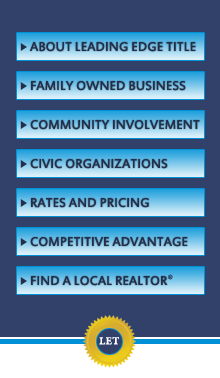
Scary Things to Avoid when Buying a Home
Fall is here and even though some home sellers take their listings into hibernation, motivated sellers keep their homes on the market through the Holidays. So in honor of Halloween, RE/MAX compiled some the scariest things that homebuyers should look for to avoid liability. The following mistakes to avoid when home buying spook RE/MAX REALTORS® every year:
Geological Problems: If a home is built on a slope or has retaining walls, you need to be extra cautious. In these situations, it is important to consult a geotechnical engineer before you buy a home on a hillside so a landslide does not wipe out your investment.
Faulty Siding: Homes built between the ’80s and ’90s tend to have siding issues. Problem siding could absorb or trap water against the house, which could lead to rot. In the end, if siding on a home looks like it has been painted several times or needs painted, it is smarter to keep looking for better options.
Bad Neighbors: Sometimes it’s not the home, it is the neighborhood. The real cost is the reduction of your home’s value and how difficult your home may be to sell in the future. Loud, messy or inconsiderate neighbors can be hard to overcome and continues during reselling. Other neighborhood issues like school district or amount of traffic can cost you more in the end as well.
Special Assessments: Sellers typically would have to reveal any special assessments that are pending, but those that are merely rumored or not yet settled by the association board may not have to be disclosed. RE/MAX recommends talking to current or former residents of the development to see what might be on the horizon.
Busy Streets: Traffic noise ranges from a virtual nonissue in urban neighborhoods, where it’s expected, to a potential deal killer in otherwise quiet suburban areas. Either way, high traffic areas are easier to avoid because buyers are eliminating homes on busy streets because they have so many other options.
Water Damage and Mold: Water damage comes in dozens of forms including water seeping into basements, pooling in crawl spaces, leaking in from siding or trickling down from roofs. Left alone, water causes rot and mold. All too often, homeowners don’t discover the problems—or if they do, they ignore them. Either way, unsuspecting buyers can inherit expensive repairs.
Hard-to-Insure Homes: At a minimum, potential buyers should ask to see recent insurance bills to see what they’re likely to be charged. Buyers also should keep in mind that if a disaster hits, their premiums could shoot up even higher. This is especially important in areas with high flood rates and wild fire occurrences.
Hard –to-Finance Homes: A unique home may stir your soul, but you may have a tough time persuading a lender to give you a mortgage. Even if you succeed, the next buyer may not, which could make it tough to sell the house someday. That’s why it’s so important to have a thorough, professional home inspection before you buy, and to make your purchase contingent on that inspection. You should know what you’re getting into before it’s too late to back out.
You’ve scraped together a down payment, with just enough money left over to pay closing costs. What you’re unlikely to have is a big pot of cash to pay for repairs—or a clear understanding of how much certain home flaws can cost you down the road. So hopefully the tips above can help you avoid these mistakes and make your buying experience as smooth as possible.
Thank you: RISMedia

